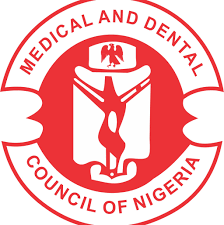The United Nations International Children’s Emergency Fund (UNICEF) has expressed concern over the low rate of exclusive breastfeeding in South-South states, saying it is a ‘sin’ for mothers not to practice exclusive breastfeeding.
Nutrition Specialist, UNICEF Rivers Rield Office, Mrs. Ngozi Onuora, stated this in Uyo, Akwa Ibom State at zonal media dialogue for journalists on the sidelines of the 2021 World Breastfeeding Week organised by UNICEF in collaboration with the Broadcasting Corporation of Abia State.
She said investigations revealed that in some communities, mothers complain that they stopped breastfeeding after two, three weeks, or one month because their breast milk was not usually enough to continue breastfeeding their children.
She stressed that stakeholders and the media have the responsibility of ensuring that society returned to exclusive breastfeeding through advocacy, because of its benefits to the development and overall wellbeing of children.
“It is everybody’s responsibility to protect children. And I want to tell us that it is a sin for mothers not to practice exclusive breastfeeding, which is a child’s first food as an infant. It is also a bigger sin for us individuals, stakeholders in the society that are not encouraging mothers to practice exclusive breastfeeding.”
“Exclusive breastfeeding has a lot of benefits. Breastfeeding is a power saver of life. It is also critical to the long-term health and wellbeing of the mother and child. Unfortunately, most mothers fail to optimally breastfeed their children.”
“In fact, the most current survey globally, only 41 per cent of infants are exclusively breastfed in the first six months and optimal breastfeeding practices contribute to roughly 800, 000 infant deaths yearly and this is on the high side,” she said.
Onuora stressed that exclusive breastfeeding was the foundation for a child’s survival, stressing that child mortality and illnesses are preventable through exclusive breastfeeding and zero water practices.
Earlier, Director of Community Health, Akwa Ibom State Ministry of Health, Mrs. Margaret Etim, noted that the important role the media plays in information dissemination and creation of awareness on issues informed the engagement.
“We are here today because of the passion UNICEF has for this programme. The media is a key stakeholder in protecting breastfeeding that will bring about positive behavioural change in protecting breastfeeding and achieving the Sustainable Development Goals (SDGs) 4 and 5.




